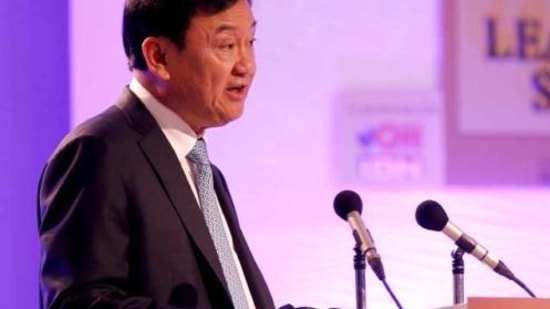Royal defamation in Thailand: Political and legal flashpoint
Authored by - Ananya Raj Kakoti and Gunwant Singh, scholars, international relations, Jawaharlal Nehru University, New Delhi.
Over the past two decades, Thailand's political landscape has been characterised by significant turmoil and instability, marked by frequent changes in leadership, military coups, and contentious legal battles involving prominent political figures. This period has witnessed a series of power struggles between various factions, with the military and judiciary playing pivotal roles in shaping the country's governance. From the ousting of elected governments to the imposition of military rule, Thailand's political scene has been a battleground for competing ideologies and interests, leading to widespread protests and social divisions. The interplay of political power, legal controversies, and public dissent has created a complex and often volatile environment, reflecting the deep-rooted challenges in establishing a stable and democratic political order in the country.

This period of upheaval began with the rise of former prime minister (PM) Thaksin Shinawatra, a billionaire telecommunications tycoon who came to power in 2001. Thaksin's tenure abruptly ended in 2006 when he was ousted in a military coup. Despite his exile, Thaksin's influence persisted through his sister, Yingluck Shinawatra, who became prime minister in 2011. However, her administration faced a similar fate when she was removed from office by another military coup in 2014.
Both Thaksin and Yingluck have faced numerous legal challenges, often perceived as politically motivated, including charges of corruption and abuse of power. The legal pressures on Thaksin escalated further when he was formally charged with royal defamation under Thailand’s strict lese-majeste laws. These charges stem from a 2015 interview in South Korea, during which Thaksin alleged that king-appointed privy councillors supported the 2014 coup that ousted Yingluck from power. This accusation could result in a prison sentence of up to 15 years, adding to the complex and often volatile environment that has marked Thailand's recent political history.
Thaksin's legal troubles are part of a broader wave of political and judicial actions in Thailand. He returned to the country last year after spending 15 years in self-imposed exile, primarily in Dubai. Upon his return, he was jailed on separate corruption and abuse of power charges, although he was released on parole in February 2024 due to medical reasons.
The lese-majeste laws in Thailand are among the strictest in the world, criminalising perceived insults or defamation of the monarchy with severe penalties, including long prison sentences. These laws are rigorously enforced, often leading to the arrest and prosecution of individuals who are perceived to have made statements or engaged in activities that could be construed as disrespectful to the royal family. The penalties can be harsh, with offenders facing up to 15 years in prison for each count of defamation, which serves as a powerful deterrent against criticism of the monarchy.
In addition to these charges, Thaksin Shinawatra also faces accusations under the Computer Crimes Act. This law, which is similarly stringent, criminalises the inputting, alteration, or dissemination of data that could be deemed a threat to national security or public order. The charges against Thaksin under this act stem from allegations that he inputted information into a computer system that was considered dangerous to the state. This law has been criticised for its broad scope and potential for misuse, as it allows the government to target political opponents and suppress dissent by framing their online activities as threats to national security. The combined impact of these laws highlights the significant legal and political challenges faced by those who oppose or criticise the Thai government and monarchy.
This development occurs amid several other high-profile political cases in Thailand, including potential legal challenges to PM Srettha Thavisin and efforts to disband the opposition Move Forward Party, which has advocated for changes to the lese-majeste law. The political climate has had significant repercussions on the country's economy, with the stock market experiencing notable declines.
Despite these challenges, Thaksin remains a significant figure in Thai politics, with his party, Pheu Thai, continuing to play a crucial role in the country's political dynamics.
The indictment of Thaksin Shinawatra on royal defamation charges highlights the persistent volatility and complexity of Thai politics. The intertwining of legal and political battles underscores the deep-rooted issues within the country's governance structure. As Thailand navigates these challenges, the impact on its political stability and economic health remains a significant concern for both domestic and international observers.
This article is authored by Ananya Raj Kakoti and Gunwant Singh, scholars, international relations, Jawaharlal Nehru University, New Delhi.






